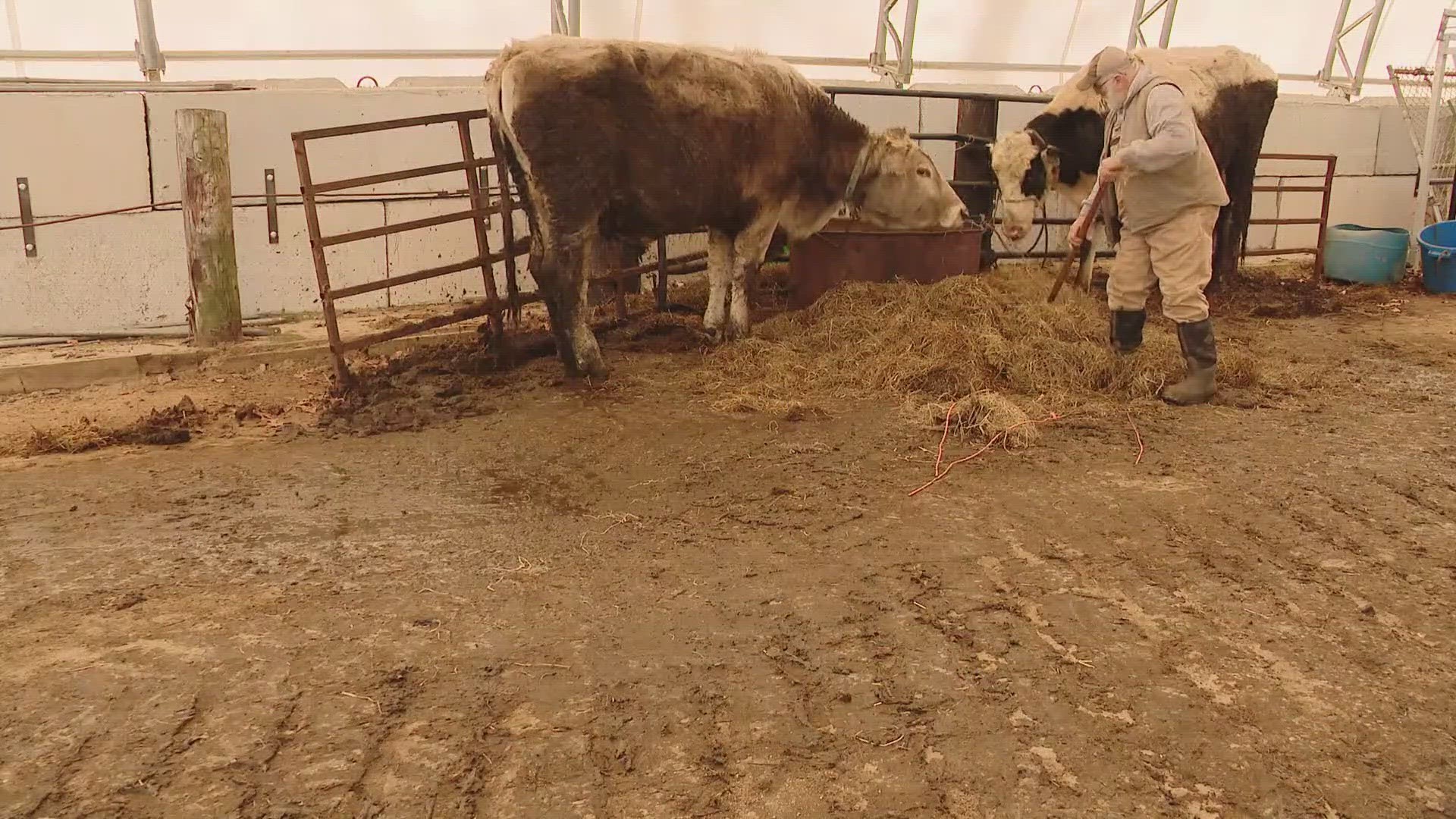AUGUSTA, Maine — The public will get a chance to speak out about final rules put forth by state regulators on how to spend $60 million in relief funds for Maine farms devastated by industrial chemicals known as PFAS.
Members of a committee were scheduled to continue their work Monday in Augusta by opening the floor to public comment. The public hearing, however, was postponed due to inclement weather conditions.
The Fund to Address PFAS Contamination aims to provide money to farmers affected by forever chemicals to buy contaminated land for research and to support health-related initiatives, such as blood testing and mental health care.
The advisory committee, which includes Maine representatives, senators, and experts, will hear public comment on the proposed rules that have been drafted.
Fred Stone is a farmer whose land and production was totally affected by PFAS.
Stone has been an outspoken leader in the effort to uncover how forever chemicals have affected his and other farms around the state.
Stone was the first farmer to speak out about high levels of PFAS chemicals discovered in his cow's milk, soil, drinking water, and his family's blood. He said bills are adding up while he waits for this relief fund's approval.
"Having seen the health effects that my wife and I, my daughter, and son are suffering, I just couldn't keep my mouth shut," Stone expressed.
Any commercial farm with high levels of PFAS will be able to apply for financial assistance from Maine's first-in-the-country PFAS relief fund.
Stone's century-old dairy farm in Arundel was shut down by contamination.
Stone has Parkinson's and other health problems, which he said he believes are linked to the exposure.
"Everything from the state is super slow, and it's awful hard to tell the power company or the insurance people or the repairs we need for equipment," Stone said, explaining how difficult it has been for him to fund out of his own pocket some spendings linked to the discovery of high levels of PFAS in his farm.
Beth Valentine is the PFAS fund director for the Maine Department of Agriculture, Conservation, and Forestry, which is the entity behind this fund.
Valentine said it takes time to make these funds available because there are many steps statewide and even out-of-state that need approval, but the public hearing is the last step.
Valentine said the department knows of 50 farms so far in Maine that have either contaminated water, soil, or both.
After lots of research, Valentine said the presence of PFAS is not the end of farming.
"Just over the two years that the department has been actively engaged in working with impacted farmers, we have learned an incredible amount about how farmers can continue to farm on the impacted property, so the long-term goal is to continue to maintain strong viable healthy farms in Maine despite the presence of PFAS," Valentine said.
Once the rules are finalized and approved by state government officials, applications will open up, and the funds will be distributed to those who qualify.
Click here to learn more about the PFAS fund.

